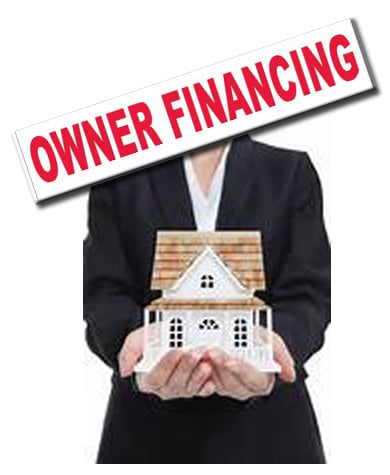Many people don’t understand the difference between owner financing, lease-purchase agreements, and renting to own. It can be the best answer to your situation whether you’re a buyer or a seller, but it also can be your worst nightmare leaving you to ask, “Where’s my money?” Owner financing is when a loan is provided by the seller of a property to the purchaser, who will make a down payment to the seller and monthly payments over time at an agreed interest rate until the loan is paid. The first question to ask about owner financing is who is eligible? A home owner cannot finance the sale of their home if they have a mortgage – their home must be paid for completely. This eliminates most home owners from the ability to offer owner financing when selling their home.
The advantage to the seller is they can collect payments and have the ability to foreclose on the home if payments become delinquent. The advantage to the purchaser is less paperwork and no bank requirements. Most owner/sellers will charge the same interest rate a bank would charge and require a sizeable down payment; however, the terms of the agreement are negotiable.
The second question to ask is why a buyer is interested in owner financing. Typically, it’s because they can’t get a mortgage loan – red flag for the seller. With most owner financing, the loan will “balloon” after a specified period of time. The loan may be amortized over 30 years but is due in full after 5 to 10 years when it “balloons”. The buyer most likely will obtain a bank mortgage to pay off the owner financed obligation.
A Lease-Purchase Contract combines the idea of renting and buying in one contract. A lease purchase usually requires a non-refundable down payment. This protects the owner from costs involved if the buyer does not end up purchasing the home. It motivates the buyer to complete the purchase process as the down payment already has been made. The buyer leases the home with a monthly payment that is commensurate with the market rate. It’s a great way to purchase a home if you are not certain about how long you’ll live there or have issues obtaining a bank loan.
The seller can obtain a top sales price, positive cash flow during the lease agreement, no commissions or fees, no maintenance during the lease period, and don’t forget the non-refundable deposit. Real estate agents sometimes use an Early Possession by Purchaser Contract, which is very similar (buyer takes over maintenance and rents while waiting for the closing date). Early Possession Contracts normally are for a shorter term than Lease Purchase Contracts and include the real estate agent’s commission fee.
Rent to Own is just a bit different from the typical lease purchase. With a rent-to-own agreement, a portion of the monthly payment is credited to the buyer at closing. This can be considered the buyer’s down payment. The home is leased in exchange for a weekly or monthly payment, with the option to purchase at some point during the agreement.
With all three of these ways to purchase a home, the terms are agreed prior to signing the contract. In every case, the seller will want to check the credit and background of the buyer and obtain a nonrefundable deposit. It is best to seek the advice of a lawyer and/or real estate agent for the proper forms and disclosures. Without the proper forms, disclosures, and good communication, both buyer and seller could end up asking, “Where’s my money?”


